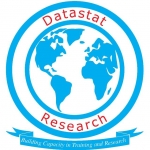|
|
2025 Training Course on HIV/AIDS Management - CALL FOR APPLICATIONS
USD 1,100 |
Venue: Nairobi
HIV/AIDS management remains a critical component of healthcare and public health strategies worldwide. This comprehensive training course is designed to equip professionals with the knowledge, skills, and tools needed to address the challenges posed by HIV/AIDS effectively. By fostering a deeper understanding of the disease and its societal impact, the course enables participants to contribute to prevention, care, and management programs, making a tangible difference in their communities.
This training offers a holistic approach, combining medical, social, and behavioral perspectives to HIV/AIDS management. It emphasizes the importance of evidence-based practices, patient-centred care, and the integration of modern technologies to enhance program effectiveness. Participants will gain insights into the latest research, policy updates, and innovative strategies shaping HIV/AIDS prevention and treatment globally.
The course is tailored to meet the needs of diverse stakeholders, including healthcare professionals, program managers, and policymakers. It bridges the gap between theory and practice, enabling participants to design and implement sustainable solutions that address the unique challenges faced in their respective contexts. Special focus is given to resource-constrained settings, where the need for impactful interventions is most urgent.
By the end of the program, participants will have developed actionable skills and strategies to manage HIV/AIDS programs effectively. They will also join a global network of professionals committed to combating the epidemic and improving the quality of life for those affected.
Course duration
5 days
Course Objectives
- Understand the epidemiology and pathophysiology of HIV/AIDS.
- Explore the global and regional trends in HIV/AIDS prevalence and prevention.
- Develop skills in patient-centered HIV care and counseling.
- Learn evidence-based practices for HIV prevention, treatment, and management.
- Examine the social and economic impacts of HIV/AIDS.
- Understand the role of stigma and discrimination in HIV/AIDS management.
- Build capacity for designing and implementing community-based interventions.
- Enhance skills in monitoring, evaluation, and reporting of HIV/AIDS programs.
- Familiarize with the latest policies, technologies, and innovations in HIV/AIDS care.
- Develop strategies for resource mobilization and sustainable program funding.
Organizational Benefits
- Strengthen the capacity of staff to manage HIV/AIDS programs effectively.
- Improve organizational compliance with national and international HIV/AIDS policies.
- Enhance the organization's reputation as a leader in public health initiatives.
- Reduce absenteeism and improve employee productivity through health programs.
- Foster a supportive and inclusive workplace environment.
- Build partnerships with stakeholders in HIV/AIDS prevention and care.
- Contribute to corporate social responsibility goals.
- Increase the impact and sustainability of community-based health initiatives.
- Promote knowledge sharing and professional development among staff.
- Support the organization's mission to advance public health and wellness.
Target Participants
This course is ideal for:
- Healthcare providers (doctors, nurses, and clinical officers)
- Public health officers and epidemiologists
- Community health workers and outreach coordinators
- NGO program managers and field officers
- Government health officials and policymakers
- Social workers and counselors involved in HIV/AIDS care
- Educators and trainers in health-related fields
- Researchers in public health and social sciences
- HR professionals implementing workplace HIV programs
- Students and professionals pursuing careers in global health
Course Outline
Module 1: Understanding HIV/AIDS
- Epidemiology and pathophysiology
- Transmission and prevention mechanisms
- Global and regional statistics and trends
- Socioeconomic and cultural factors influencing spread
- Case Study: Successful HIV/AIDS prevention campaigns
Module 2: Diagnosis and Treatment
- HIV testing and counseling protocols
- Antiretroviral therapy (ART) guidelines
- Managing co-infections and complications
- Innovations in HIV treatment and vaccine development
- Case Study: ART success stories in resource-limited settings
Module 3: HIV Prevention Strategies
- Behavioral change communication techniques
- Condom promotion and safe practices
- Pre-exposure prophylaxis (PrEP) and post-exposure prophylaxis (PEP)
- Community-based intervention models
- Case Study: Best practices in prevention programs
Module 4: Addressing Stigma and Discrimination
- Understanding stigma in healthcare and communities
- Strategies to reduce stigma and promote inclusivity
- Legal frameworks and advocacy for rights protection
- Role of media and education in reducing stigma
- Case Study: Overcoming stigma in HIV programs
Module 5: HIV/AIDS Policy and Advocacy
- National and international HIV/AIDS policies
- Role of governments, NGOs, and international bodies
- Advocacy strategies for sustainable impact
- Funding mechanisms and donor engagement
- Case Study: Influential HIV policy reforms
Module 6: Community-Based Interventions
- Engaging stakeholders and community leaders
- Training community health workers
- Designing culturally appropriate programs
- Monitoring and evaluation of interventions
- Case Study: Successful grassroots initiatives
Methodology
The instructor led trainings are delivered using a blended learning approach and comprises of presentations, guided sessions of practical exercise, web-based tutorials and group work. Our facilitators are seasoned industry experts with years of experience, working as professional and trainers in these fields.
Register as a group from 3 participants for a Discount
Certification
Upon successful completion of this training, participants will be issued with a globally- recognized certificate.
Tailor-Made Course
We also offer tailor-made courses based on your needs.
Key Notes
a. The participant must be conversant with English.
b. Upon completion of training the participant will be issued with an Authorized Training Certificate
c. Course duration is flexible, and the contents can be modified to fit any number of days.
d. The course fee includes facilitation training materials, 2 coffee breaks, buffet lunch and A Certificate upon successful completion of Training.
e. One-year post-training support Consultation and Coaching provided after the course.
f. Payment should be done at least a week before the commencement of the training, to DATASTAT CONSULTANCY LTD account, as indicated in the invoice so as to enable us to prepare better for you.
| Nairobi | Feb 10 - 14 Feb, 2025 |
| USD 1,100.00 | |
Sammy Gathuru +254724527104
Related Courses
 Training Course on Data Visualization using Tableau
Training Course on Data Visualization using TableauOn going
5 days, 06 - 10 Jan, 2025
Datastat Research Center
 2025 Alcohol and Drug Abuse Training - CALL FOR APPLICATIONS
2025 Alcohol and Drug Abuse Training - CALL FOR APPLICATIONS
5 days, 10 - 14 Feb, 2025
Datastat Research Center





